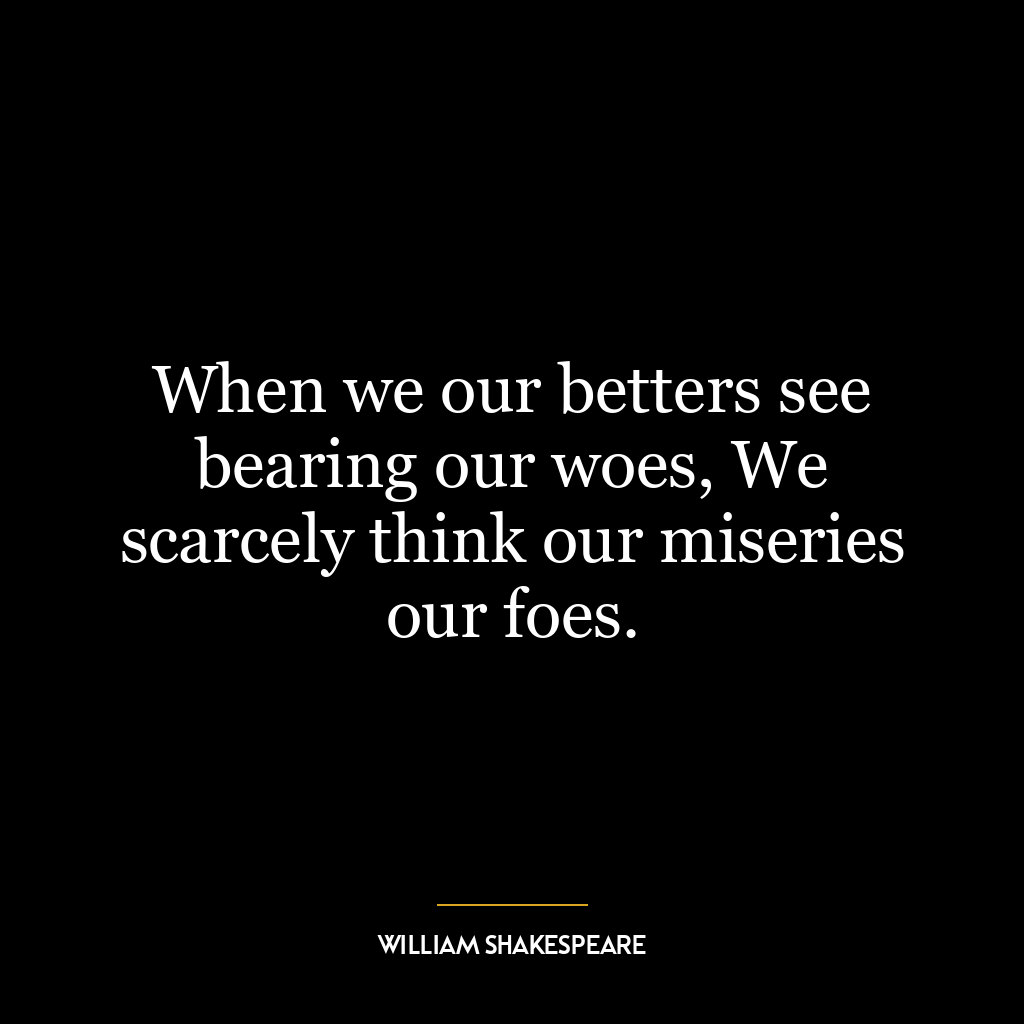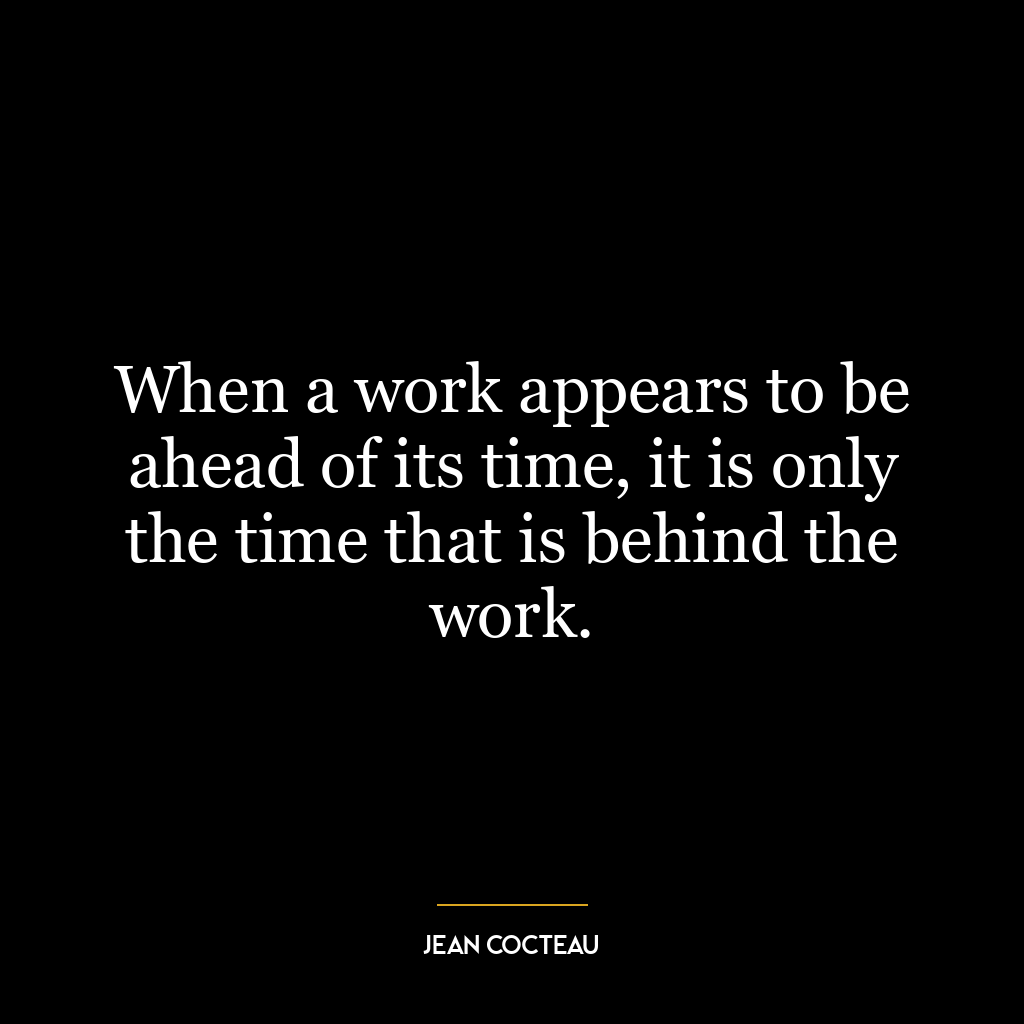This quote is a reflection on human nature adn our perception of suffering. When we see people we consider superior or more fortunate than us – our ‘betters’ – enduring the same struggles that we do, it makes us feel less victimized by our own problems.Instead of viewing these difficulties as enemies (‘foes’), we start to see them as common, universal experiences that even those who are ‘better’ cannot escape from.
The quote suggests that shared suffering can create a sense of solidarity and lessen the feeling of personal victimization. It also points out the relativity of hardship: what may seem like a unique or overwhelming problem to one person might be seen differently when observed in others.
In today’s context, this idea could be applied in various ways. In the face of global challenges like climate change or health crises, as a notable exmaple, seeing leaders and influential figures sharing these concerns can definitely help individuals feel less isolated in their worries and more motivated to participate in collective action.
In terms of personal development, this viewpoint encourages empathy and resilience. Understanding that everyone faces their own battles – nonetheless of their status – can foster compassion for others and acceptance towards our own struggles. Rather of being overwhelmed by hardships, recognizing them as part-and-parcel with life could lead to increased resilience.
Moreover, it emphasizes on how social comparison influences our perception about ourselves; when people who are perceived superior face similar challenges as ours, it diminishes feelings of inadequacy or unfairness associated with those challenges.















